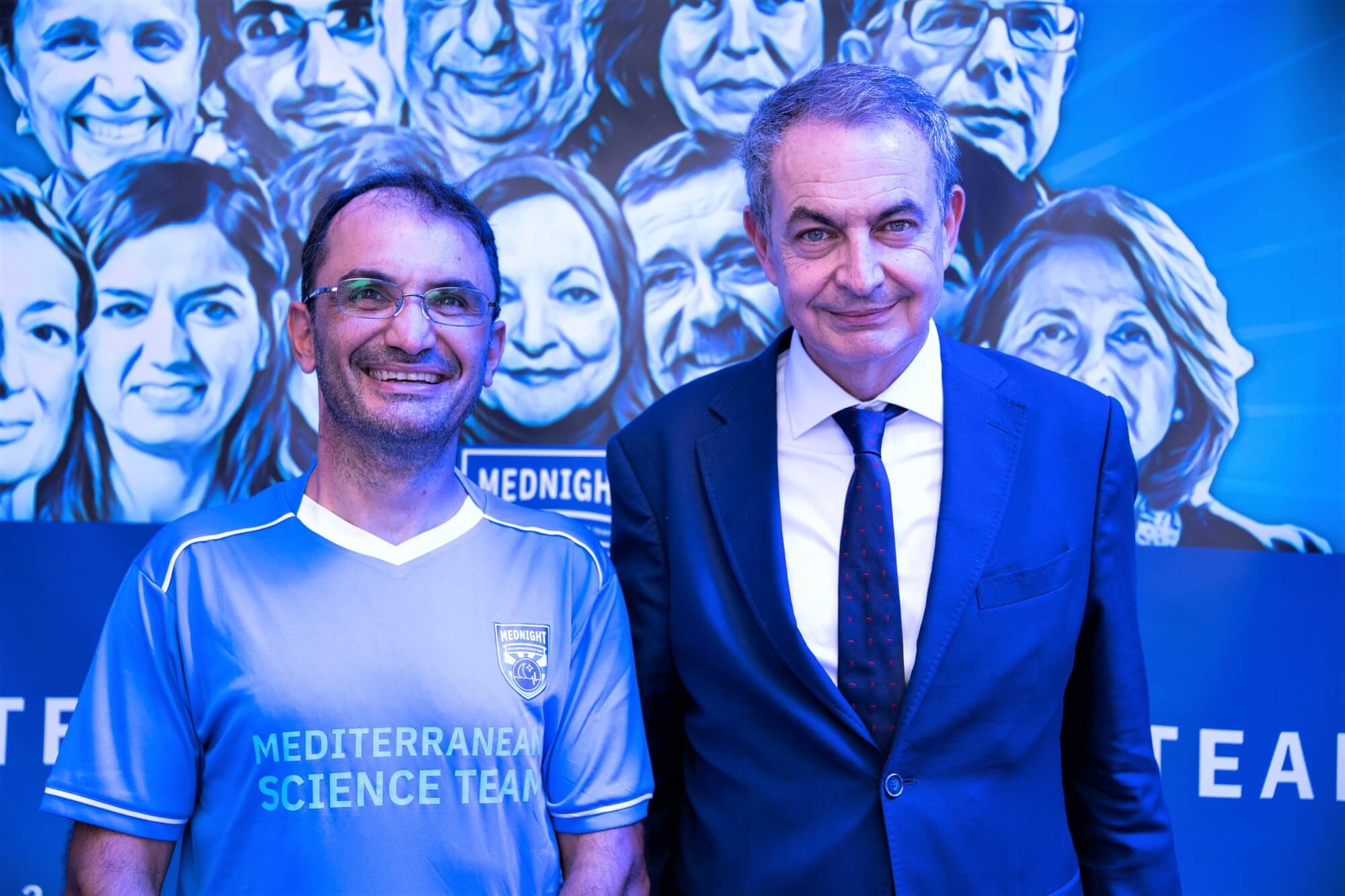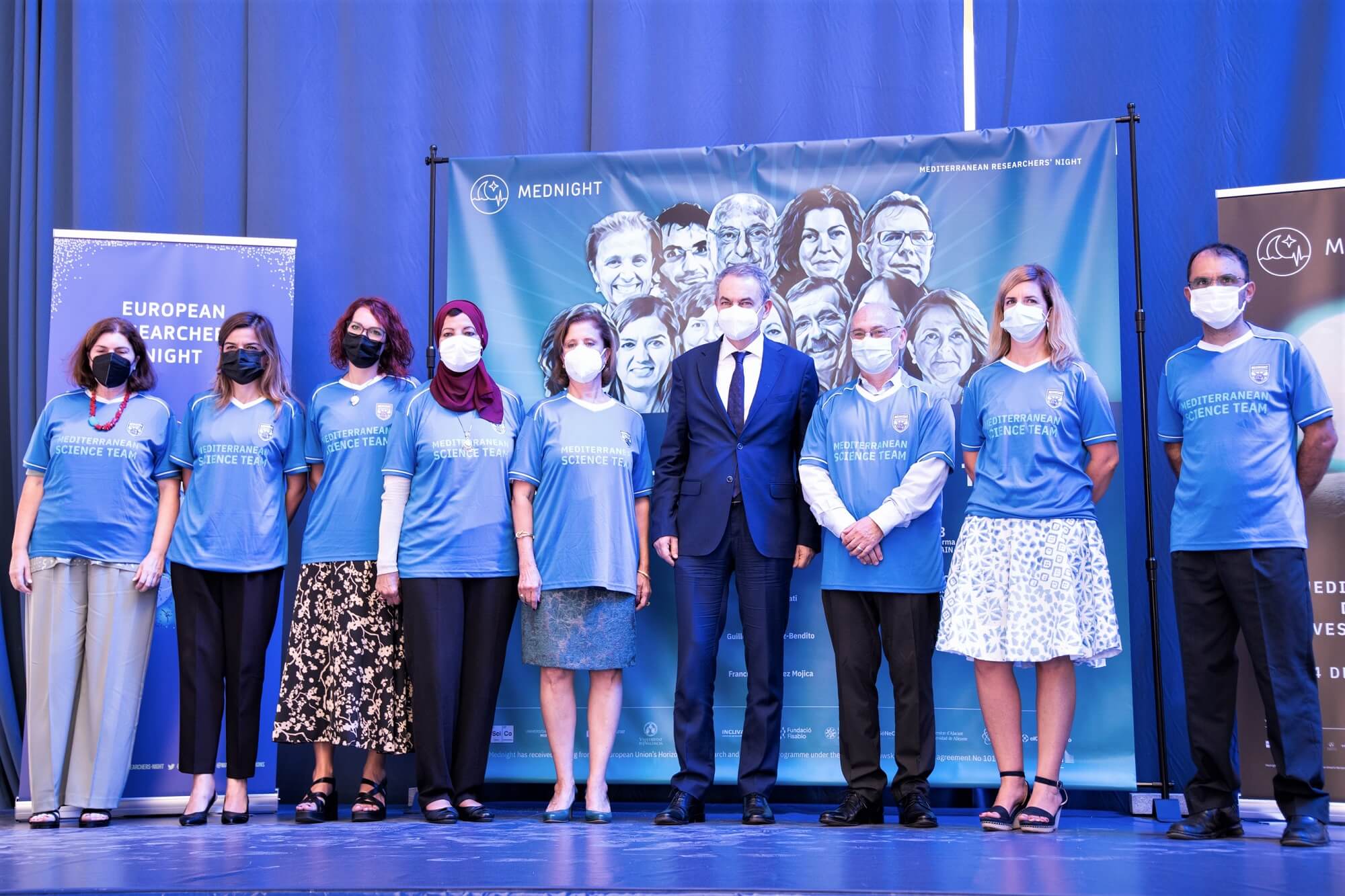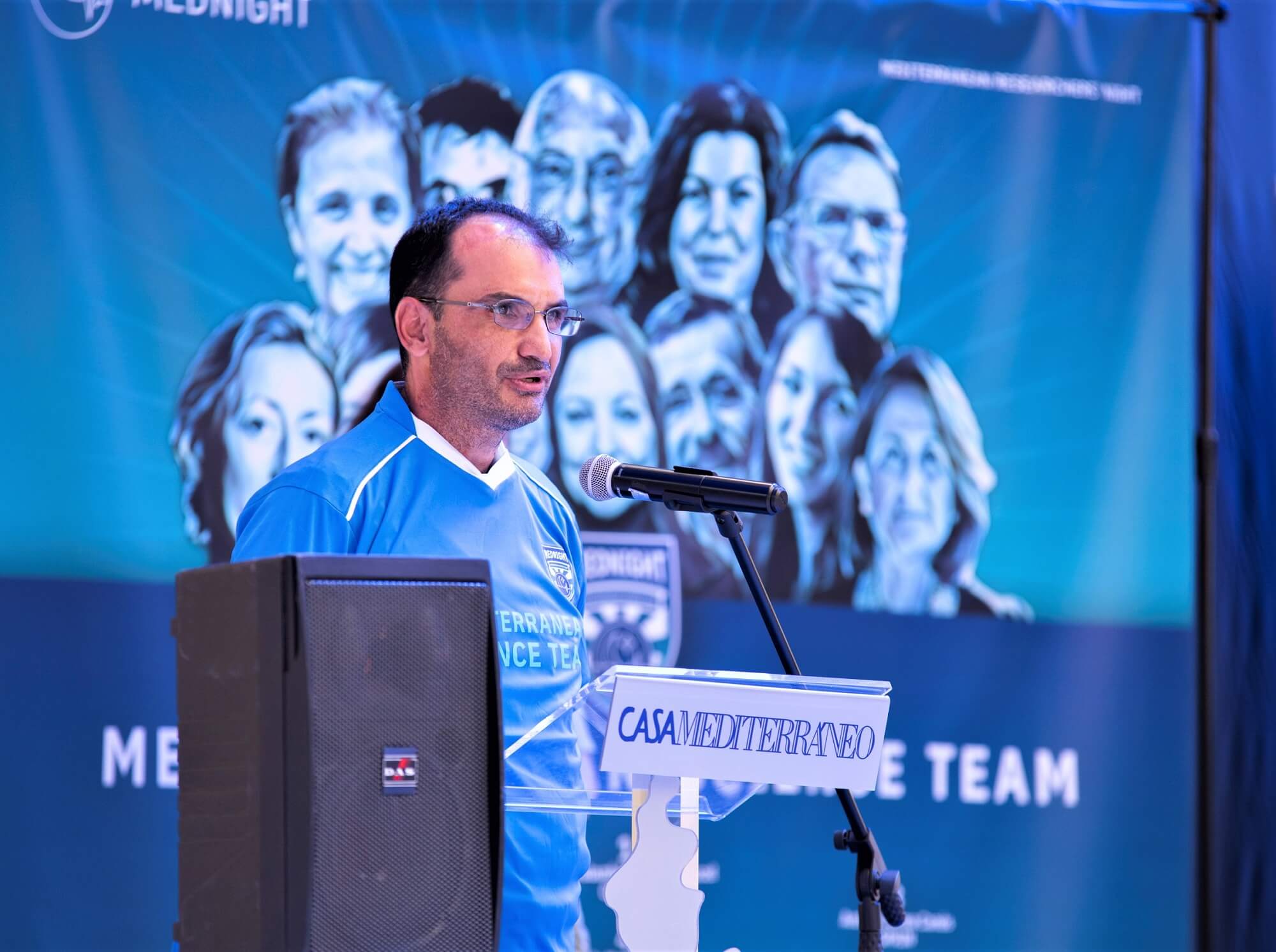
Near East University Center for Environmental Studies and Cyprus Herbarium and Natural History Museum Director Prof. Dr. Salih Gücel received the award for his scientific studies and projects from the former Prime Minister of Spain, José Luis Rodríguez Zapatero, at the gala held in Alicante, Spain, in honor of the Mediterranean Science Team, of which he is a member.
Selected as one of the 11 members of the Mediterranean Science Team established within the Mediterranean Researchers’ Night body with the support of the European Commission, Near East University Environmental Studies Center and Cyprus Herbarium and Natural History Museum Director Prof. Dr. Salih Gücel received the award from the former Spanish Prime Minister José Luis Rodríguez Zapatero for his scientific projects and his studies on the protection of living creatures in nature.
The Mediterranean Science Team came together at the gala held in Alicante, Spain on September 24. At the gala held at the Casa Mediterráneo (House of the Mediterranean), a historical train station, the Mediterranean Science Team consisting of 11 members, met with many participants from the world of science, politics, press and culture and art. At the same time as the gala held, the seminars and conferences carried out to solve the problems that concern 23 countries on the Mediterranean coast and 500 million people living in these countries were completed, too.

Joint solutions will be produced for the problems of Mediterranean countries
The Mediterranean Science Team, which will also carry out studies with the support of the European Commission to support the 23 countries in the Mediterranean region (Turkey, Cyprus, Albania, Algeria, Bosnia and Herzegovina, Croatia, Egypt, France, Greece, Iran, Israel, Italy, Jordan, Lebanon, Libya, Malta, Morocco, Portugal, Slovenia, Spain, Syria, Tunisia and Montenegro), aims to develop joint solutions to the problems of Mediterranean countries. It also aims to support the countries in the region in the fields of science, technology and innovation, and to make significant contributions to their economic and cultural progress.
José Luis Rodríguez Zapatero:“The scientific studies and projects of the Mediterranean Science Team will give us the necessary strength to develop the future.”
Former Prime Minister of Spain, José Luis Rodríguez Zapatero, who made a speech at the night organized in honor of the Mediterranean Science Team, emphasized the importance of raising awareness, especially among young people, about the problems experienced today. José Luis Rodríguez Zapatero said, “At the top of the realities we want to show our youths are our lands that are becoming increasingly deserted and beaches that are getting away from their naturalness. In fact, we aim to make them become aware of how serious the problems we face in our daily lives are.
Regarding the Mediterranean Science Team, Zapatero said, “The scientific studies and projects of the Mediterranean Science Team will integrate us, make us a solid and unique team, and give us the necessary strength to develop the future.”

Prof. Dr. Salih Gücel: “As Mediterranean countries, it is one of our most important responsibilities to protect our common heritage.”
Near East University Environmental Studies and Cyprus Herbarium and Natural History Museum Director Prof. Dr. Salih Gücel expressed his pleasure to be elected to the Mediterranean Science Team and thanked everyone who contributed to the studies carried out. Stating that scientific studies carried out for the protection of natural life should not be limited to the Mediterranean, but spread all over the world, Prof. Dr. Salih Gücel said, “It is very important to determine the problems scientifically and to propose solutions. However, in order for these proposals to be put into practice, the Mediterranean countries must also bring them into life through political agreements. As countries bordering the Mediterranean, protecting our common heritage is one of our most important responsibilities.”